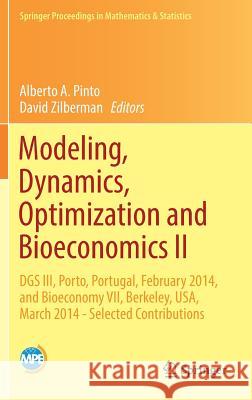Modeling, Dynamics, Optimization and Bioeconomics II: Dgs III, Porto, Portugal, February 2014, and Bioeconomy VII, Berkeley, Usa, March 2014 - Selecte » książka
topmenu
Modeling, Dynamics, Optimization and Bioeconomics II: Dgs III, Porto, Portugal, February 2014, and Bioeconomy VII, Berkeley, Usa, March 2014 - Selecte
ISBN-13: 9783319552354 / Angielski / Twarda / 2017 / 532 str.
Modeling, Dynamics, Optimization and Bioeconomics II: Dgs III, Porto, Portugal, February 2014, and Bioeconomy VII, Berkeley, Usa, March 2014 - Selecte
ISBN-13: 9783319552354 / Angielski / Twarda / 2017 / 532 str.
cena 603,81
(netto: 575,06 VAT: 5%)
Najniższa cena z 30 dni: 578,30
(netto: 575,06 VAT: 5%)
Najniższa cena z 30 dni: 578,30
Termin realizacji zamówienia:
ok. 16-18 dni roboczych.
ok. 16-18 dni roboczych.
Darmowa dostawa!
Kategorie:
Kategorie BISAC:
Wydawca:
Springer
Seria wydawnicza:
Język:
Angielski
ISBN-13:
9783319552354
Rok wydania:
2017
Wydanie:
2017
Numer serii:
000447439
Ilość stron:
532
Waga:
9.40 kg
Wymiary:
23.5 x 15.5
Oprawa:
Twarda
Wolumenów:
01
Dodatkowe informacje:
Wydanie ilustrowane











